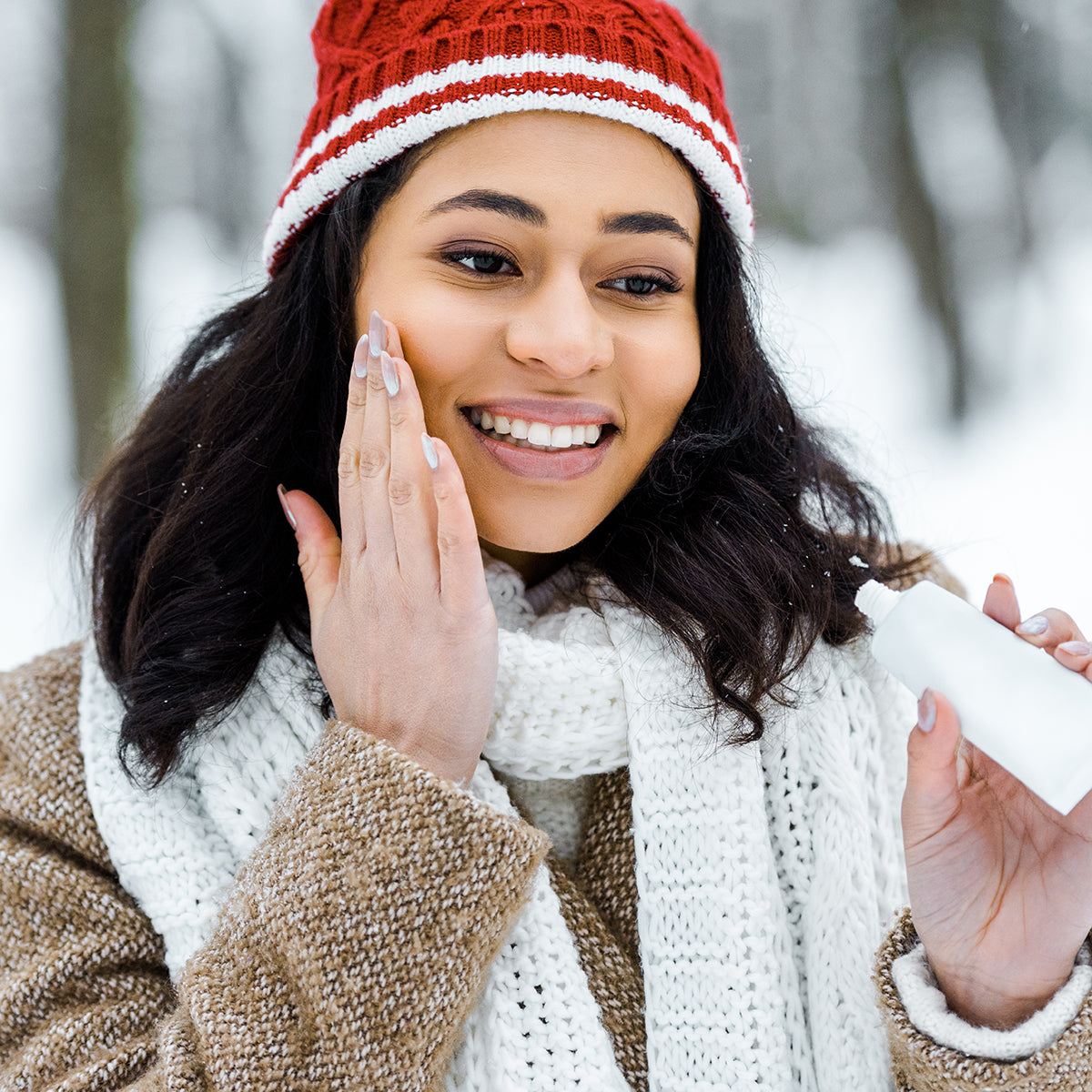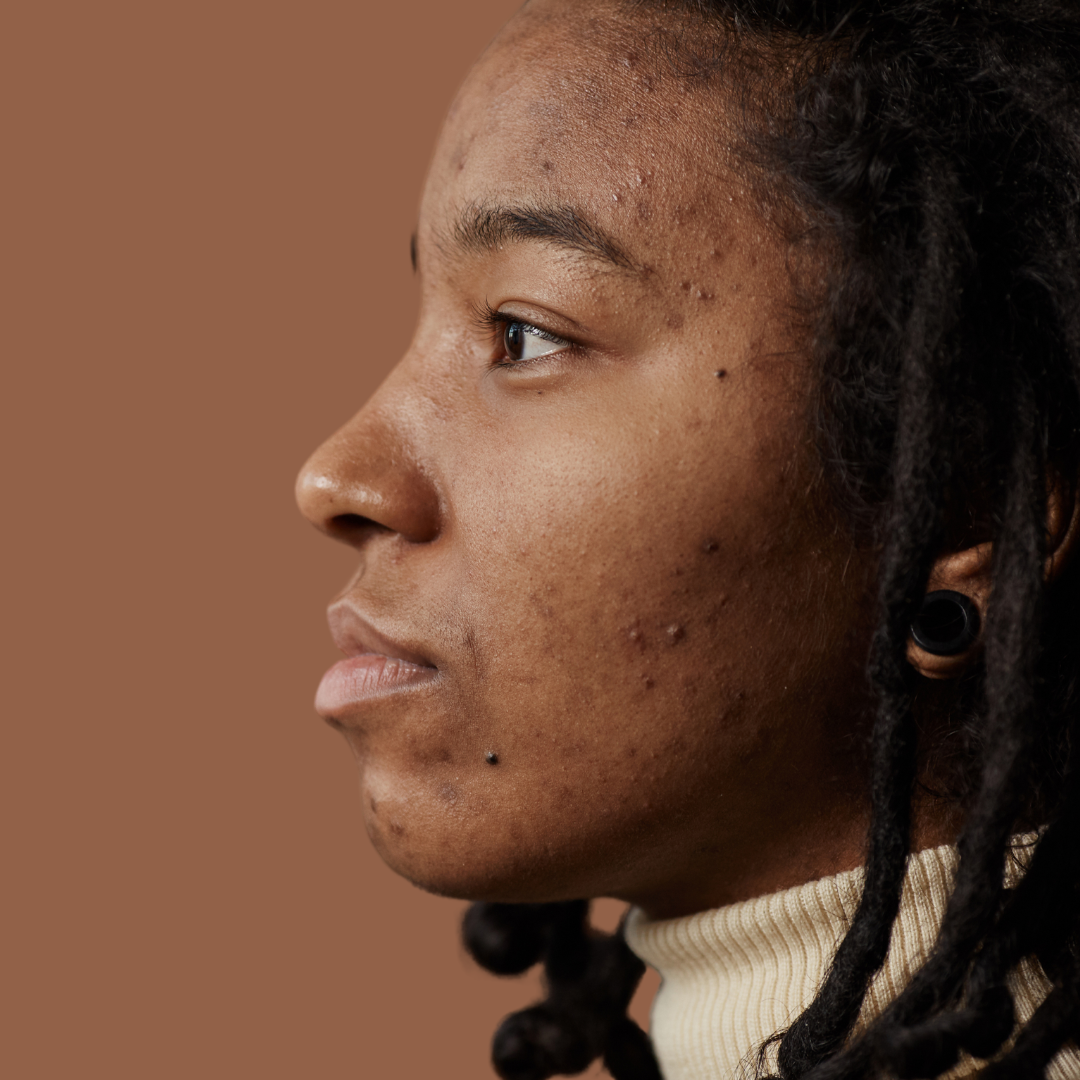
How to Care for Oily Skin in Winter
Contents:
Oily Skin During Winter
During the colder months, everyone seems to have hacks to prevent dry and flaking skin. But what about oily skin? The colder months can be a welcomed change for oily skin types. With a decrease in humidity when the weather cools, you may not have to spend as much time powdering your nose or blotting your face. However, just because it is cooler and you have noticed that you don’t need to tend to your skin as much does not mean that your sebaceous glands have stopped producing excess oil. Winter skincare routines require adjustments in your beauty routine, but this doesn’t mean you should completely abandon the products you currently use.Here at DW Aesthetics, we understand the stress that comes with caring for your skin during the changing seasons. We’ve compiled a short guide on caring for your oily skin during the colder months of the year, as well as a skin routine for you to follow with high-quality products.
What Makes Skin Oily?
Your sebaceous glands produce sebum to help keep your skin moisturised and soft. If your skin produces too much sebum, your skin can feel and appear oily, leading to acne breakouts. Genetics and hormones are the main factors to blame for oily skin. Fluctuating hormones can result in increased androgen. This is the male hormone that signals maturation of the sebaceous glands. As your sebaceous glands mature, they increase sebum production and higher the antigens present in your body. As this process happens, more sebum is funneled through the pores. This sebum sits on the surface of your skin making it appear and feel oily. When this excess oil gets trapped in your pores and combines with dead skin cells, this can lead to excess blackheads and pimples.Taking Care of Oily Skin in Winter
Taking care of dry skin during the winter months is a universal nightmare. However, it also causes issues for oily skin types. A few adjustments in your skincare routine will leave you with better skin during the colder months.
Winter Skincare Routine for Oily Skin
Wash Your Face
 Wash your face twice daily, AM and PM. This will help to keep the excess sebum at bay. Since your skin won’t produce as much excess oil during the winter, you can opt for a face wash rather than a harsh cleanser.
Wash your face twice daily, AM and PM. This will help to keep the excess sebum at bay. Since your skin won’t produce as much excess oil during the winter, you can opt for a face wash rather than a harsh cleanser.
Exfoliate
 Oily skin is more prone to blackheads and pimples. Exfoliating your skin regularly is a great way to stay on top of this. Regular exfoliating will help to get rid of excess oil and dirt that has accumulated. This will help to keep your skin cleansed and maintain a healthy texture. However, you need to be careful not to over-exfoliate your skin as this can lead to further problems. Exfoliating three times a week should help to keep that congestion at bay.
Oily skin is more prone to blackheads and pimples. Exfoliating your skin regularly is a great way to stay on top of this. Regular exfoliating will help to get rid of excess oil and dirt that has accumulated. This will help to keep your skin cleansed and maintain a healthy texture. However, you need to be careful not to over-exfoliate your skin as this can lead to further problems. Exfoliating three times a week should help to keep that congestion at bay.
Tone
 Toners serve to control excess oil in the skin as well as shrinking the appearance of pores and restoring the skin's pH balance. This turn keeps the skin moisturised and germs at bay. Toners are water based and include astringents that help to hydrate and soothe your skin.
Toners serve to control excess oil in the skin as well as shrinking the appearance of pores and restoring the skin's pH balance. This turn keeps the skin moisturised and germs at bay. Toners are water based and include astringents that help to hydrate and soothe your skin.
Moisturise
 Moisturising is the most commonly missed step from an oily skin care routine. A lot of people think that because their skin is oily, it doesn’t need to be moisturised. They couldn’t be more wrong. You need to replenish the lost moisture from your skin. You need to replenish the lost moisture on your skin. You can use a water-based moisturiser if you are feeling especially oily. Refrain from using oil-based moisturisers as they can make your skin increasingly oily.
Moisturising is the most commonly missed step from an oily skin care routine. A lot of people think that because their skin is oily, it doesn’t need to be moisturised. They couldn’t be more wrong. You need to replenish the lost moisture from your skin. You need to replenish the lost moisture on your skin. You can use a water-based moisturiser if you are feeling especially oily. Refrain from using oil-based moisturisers as they can make your skin increasingly oily.
We suggest our ‘Moisture Boost Day Cream’. A lightweight cream that is moisturising and rejuvenating, without leaving a greasy residue. A great all-around moisturiser that leaves the skin soft and glowing. Contains the finest natural moisturizers: Sodium PCA, and Hyaluronic Complex as well as Collagen and Seaweed extracts. This cream acts against skin dehydration and effectively helps to improve firmness. Provides pollution protection. Promotes longer-lasting make-up.
Use sunscreen
Sunscreen is a crucial product in any skincare routine all year round. For oily skin, water-based sunscreens are best for oily skin types. A gel-based sunscreen makes skin oiler and can lead to further breakouts. You should use sunscreen whenever you leave the house. Your skin is still exposed to and can still be damaged by the sun even in the winter. Sun damage not only increases the risk of skin cancer and premature wrinkling but the drying effect of the skin leads to an increase in sebum production. Even in the winter! Sun screens that are rich in Vitamin E are perfect for oily skin types.
Bonus Tips
Stay hydrated - We know you probably hear this tip over and over again but it is highly important! Drinking 8-10 glasses of water a day can do wonders for your skin. It flushes out toxins from your body whilst working to flush bacteria from your skin and keep it hydrated. This is especially important in the colder months when your skin is prone to drying out.
Eat clean - What you eat reflects on your skin. Avoid oily and sugary foods and munch on vegetables, fruits and nuts instead.
Avoid hot showers, although they are comforting they can severely dry out your skin. Instead try lukewarm water and gently exfoliation.
Oily Skin FAQ’s
Should I Moisturise If I Have Oily Skin?
Oily skin does not mean that you have hydrated skin. There is a clear difference between the two. Oily skin refers to the overproduction of sebum and oil by the sebaceous glands. Hydrated skin refers to the water content in your skin. This means that even oily skin needs to be moisturised, otherwise the sebaceous glands will be overstimulated and excess oil will be produced.
How Do You Take Care of Oily Skin?
The most important aspect of taking care of oily skin is having a good, regular skin care routine. You should cleanse your skin twice daily, use oil free cosmetics and choose your moisturiser wisely. When you have oily skin, you need to be mindful of everything that touches your skin.
Is it Bad to Have Oily Skin?
Oily skin is not necessarily unhealthy but it can clog up your pores and cause blackheads and pimples. Skin is healthy when it is neither too oily or too dry. Its all about finding balance. Using the right products and developing a good skin care routine will help you to reduce the oil levels in your skin.
Why is My Nose so Oily?
An oily nose is a highly common problem. Oiliness occurs when the sebaceous glands in your nose produce too much sebum. If you suffer with oily skin your nose may produce considerably more oil as the pores are naturally larger on your nose. Why is My Face so Oily in the Morning?
Our skin loses more water towards the end of the day and during the night. This causes our sebaceous glands to work in conjunction with eccrine sweat glands to emulsify the sweat. This makes it more lipid and not so easily lost during perspiration. This causes a build up of oil on your skin in the morning.


